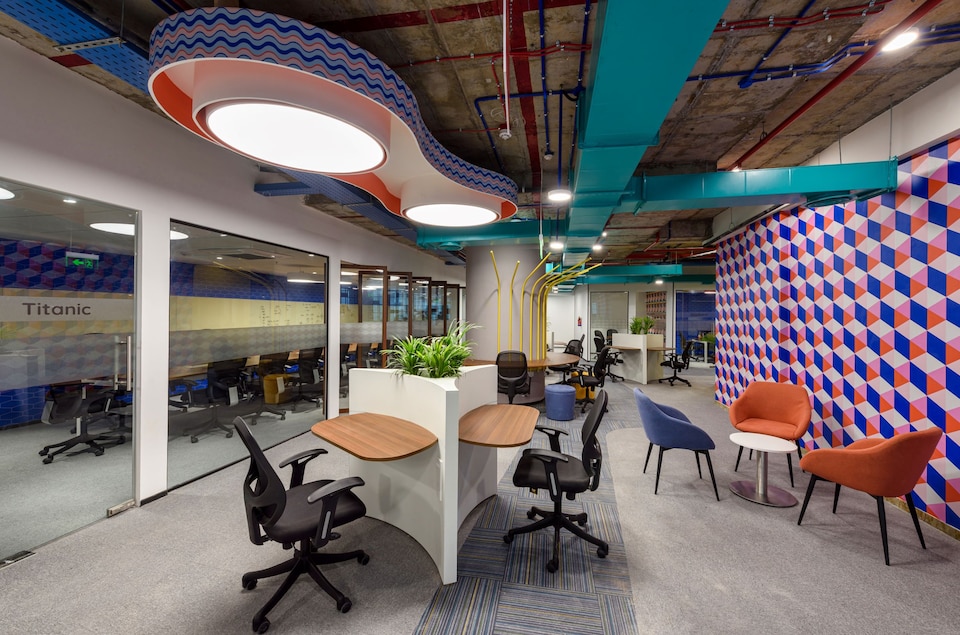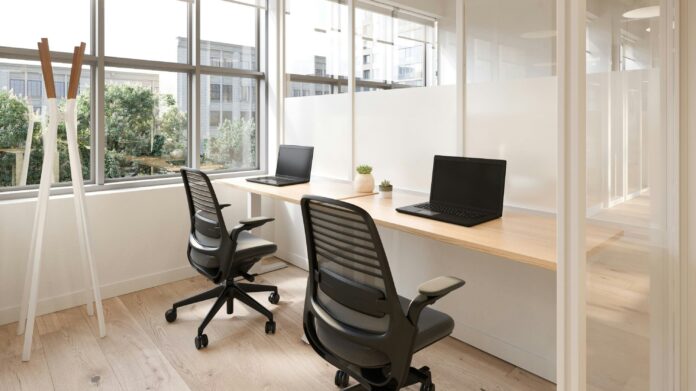In today’s fast-paced and ever-changing business world, having a dedicated office space is no longer a necessity for every organization. With the rise of remote work, flexible schedules, and co-working options, entrepreneurs and businesses have a wide range of spaces to choose from. However, with so many options available, finding the perfect office space near you can be a daunting task. This comprehensive guide will break down everything you need to know about renting an office space near you, from understanding your needs to leveraging technology and navigating the intricacies of lease negotiations.
Location and Accessibility
The first step in finding the perfect office space near you is determining the location that best suits your needs. Location plays a crucial role in the success of any business, and it’s essential to consider factors like accessibility, demographics, and proximity to transportation when choosing an office space.
Proximity to Transportation
When searching for an office space, it’s important to consider the convenience of transportation for both employees and clients. A centrally located office with easy access to public transportation, such as buses or trains, can make commuting easier for your team and increase accessibility for clients. Additionally, a prime location near major highways or airports can be advantageous for businesses that require frequent travel.
Demographics and Local Community
Another crucial factor to consider is the local community and demographics of the area surrounding the office space. The demographic makeup of the neighborhood can impact your business’s target audience and potential customer base. For example, a tech company may thrive in an area with a young and highly educated population, while a law firm may prefer a more established and affluent community.
Accessibility for Individuals with Disabilities
It’s also crucial to ensure the office space is accessible for individuals with disabilities. This includes features such as wheelchair ramps, elevators, and handicap-accessible bathrooms. Not only is this a legal requirement, but it also promotes inclusivity and creates a welcoming environment for all employees and potential clients.
Amenities and Facilities

The amenities and facilities offered by an office space can greatly impact the day-to-day operations of a business. It’s essential to consider what features are necessary for your team to work effectively and efficiently.
Internet and Technology Infrastructure
In today’s digital age, a reliable internet connection is crucial for businesses. When searching for an office space, make sure to inquire about the quality and speed of the internet connection. Additionally, consider if the space offers any technological infrastructure, such as conference room technology or security systems.
Parking Options
Parking can be a significant concern for employees and clients, especially in urban areas. When touring potential office spaces, ask about available parking options. Some office spaces may offer designated parking spots, while others may have street parking or parking garages nearby. Consider the needs of your team and the accessibility of parking for clients when making a decision.
Shared Spaces and Community Events
Many office spaces now offer shared spaces and community events, creating opportunities for networking and collaboration with other businesses. These shared spaces can range from communal kitchens and lounges to larger event spaces. If building relationships with other businesses is essential to your company’s growth, consider an office space that offers these shared spaces and events.
Lease Terms and Flexibility
Before signing a lease, it’s crucial to thoroughly understand the terms and conditions laid out by the landlord. This includes not only the length of the lease but also any restrictions or additional fees that may apply.
Length of Lease
The standard office lease typically ranges from one to five years. While longer leases often offer lower rent prices, they may not be suitable for businesses with fluctuating growth or those anticipating relocation in the near future. In contrast, short-term leases or month-to-month agreements provide more flexibility but may come at a higher price.
Lease Restrictions and Additional Fees
Before signing a lease, carefully review any restrictions or additional fees that may apply. For example, some landlords may restrict certain business activities or impose penalties for breaking the lease early. It’s also essential to understand what utilities and services are included in the rent and if there are any extra fees for things like maintenance or parking.
Flexibility for Growth and Expansion
When considering an office space, it’s crucial to think about your company’s future growth and expansion. Will the space be able to accommodate additional employees, or will you need to relocate? It’s important to discuss these possibilities with the landlord and determine if there is room for flexibility in the lease agreement.
Pricing and Affordability
Of course, one of the most significant factors in choosing an office space is affordability. When setting a budget, consider not only the monthly rent but also any additional expenses that may arise.
Negotiating Rent Prices
When searching for an office space, don’t be afraid to negotiate the rent price with the landlord. If the current asking price is out of your budget, try to negotiate a lower rate or ask for added amenities or services to be included in the cost.
Additional Expenses
In addition to monthly rent, it’s essential to account for other expenses such as utilities, cleaning services, and internet fees. Make sure to inquire about these costs before signing a lease and factor them into your budget.
Customer Reviews and Reputation
Before settling on an office space, consider researching the reputation and customer reviews of the landlord or leasing company. This can provide valuable insights into their responsiveness, professionalism, and overall satisfaction of previous tenants.
Online Reviews and Ratings
With the ease of access to online review platforms, it’s relatively simple to find reviews and ratings for potential office spaces. Take the time to read through reviews from current or former tenants to get an understanding of their experience and any potential issues that may arise.
Referrals and Recommendations
Another way to gain insight into the reputation of an office space is by asking for referrals or recommendations from other businesses or individuals in your network. They can provide first-hand experiences and offer valuable advice on whether the office space is a suitable fit for your business.
Conclusion

Finding the perfect office space near you involves considering a variety of factors, from location and accessibility to amenities and pricing. By defining your specific needs, researching and comparing options, and carefully reviewing lease terms, you can find an office space that aligns with your business’s current and future goals. Keep in mind that flexibility and adaptability are key as your business grows and evolves. With this comprehensive guide, you can confidently navigate the world of office rentals and find the best space for your organization to thrive.


